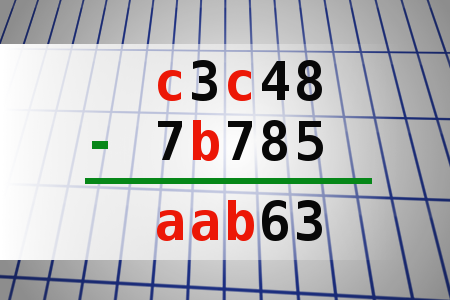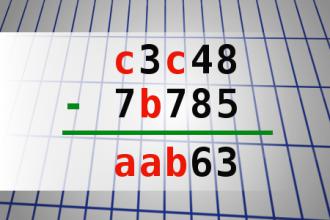Find number abc
If c3c48 - 7b785 = aab63 find number abc. Multiple solutions may exist.Correct answers: 26
The first user who solved this task is Nílton Corrêa De Sousa.
#brainteasers #math

Mommy, my turtle is dead...
"Mommy, my turtle is dead," the little boy, Freddie, sorrowfully told his mother, holding the turtle out to her.
The mother kissed him on the head, then said, "That's all right. We'll wrap him in tissue paper, put him in a little box, then have a nice burial ceremony in the back yard. After that, we'll go out for an ice cream soda, and then get you a new pet. I don't want you...." Her voice trailed off as she noticed the turtle move.
"Freddie, your turtle is not dead after all."
"Oh," the disappointed boy said. "Can I kill it?"
The mother kissed him on the head, then said, "That's all right. We'll wrap him in tissue paper, put him in a little box, then have a nice burial ceremony in the back yard. After that, we'll go out for an ice cream soda, and then get you a new pet. I don't want you...." Her voice trailed off as she noticed the turtle move.
"Freddie, your turtle is not dead after all."
"Oh," the disappointed boy said. "Can I kill it?"

